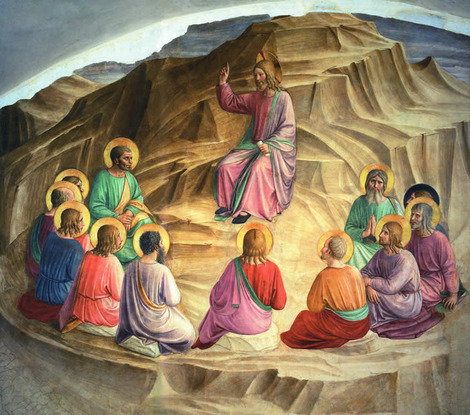Be content to trust in the Lord
Chapter II. What Kind of Man the Abbot Ought to Be
15 Jan. 16 May. 15 Sept.
Above all let him not, overlooking or under-valuing the salvation of the souls entrusted to him, be too solicitous for fleeting, earthly, and perishable things; but let him ever bear in mind that he hath undertaken the government of souls, of which he shall have to give an account. And that he may not complain for want of worldly substance, let him remember what is written: “Seek first the kingdom of God and His justice, and all these things shall be added unto you.” And again: “Nothing is wanting to them that fear Him.”
And let him know that he who hath undertaken the government of souls, must prepare himself to render an account of them. And whatever may be the number of the brethren under his care, let him be certainly assured that on the Day of Judgment he will have to give an account to the Lord of all these souls, as well as of his own. And thus, being ever fearful of the coming inquiry which the Shepherd will make into the state of the flock committed to him, while he is careful on other men’s account, he will be solicitous also on his own. And so, while correcting others by his admonitions, he will be himself cured of his own defects.
A Perennial Temptation
Given the circumstances of our little monastery, this particular portion of Chapter II goes straight to my heart. How often have I been tempted to to “complain for want of worldly substance” or to fret over finances! Saint Benedict admits that the Abbot be solicitous for the material well-being of his monastery; he does not want the Abbot to be too solicitous or it. This is a good example of Benedictine discretion and realism. The Abbot must not be careless when it comes to the administration of his monastery’s material goods and finances; he must be solicitous for such things, but not to the point of being obsessed by them, and driven to worry. The Abbot (like a parish priest or the family of a family) must order his priorities wisely: souls first, then other things.
The Lilies of the Field
Saint Benedict would have the Abbot reflect on two passages from Sacred Scripture. The first is taken from the Sermon on the Mount:
Be not solicitous for your life, what you shall eat, nor for your body, what you shall put on. Is not the life more than the meat: and the body more than the raiment? Behold the birds of the air, for they neither sow, nor do they reap, nor gather into barns: and your heavenly Father feedeth them. Are not you of much more value than they? And which of you by taking thought, can add to his stature by one cubit? And for raiment why are you solicitous? Consider the lilies of the field, how they grow: they labour not, neither do they spin. But I say to you, that not even Solomon in all his glory was arrayed as one of these. And if the grass of the field, which is today, and tomorrow is cast into the oven, God doth so clothe: how much more you, O ye of little faith? Be not solicitous therefore, saying, What shall we eat: or what shall we drink, or wherewith shall we be clothed? For after all these things do the heathens seek. For your Father knoweth that you have need of all these things. Seek ye therefore first the kingdom of God, and his justice, and all these things shall be added unto you. Be not therefore solicitous for tomorrow; for the morrow will be solicitous for itself. (Matthew 6:25-34)
The second passage is from Psalm 36. We pray Psalm 36 at Matins on Monday. I look forward to its weekly recurrence:
Art thou impatient, friend, when the wicked thrive; dost thou envy the lot of evil-doers? They will soon fade like the grass, like the green leaf wither away. Be content to trust in the Lord and do good; live on thy land, and take thy ease, all thy longing fixed in the Lord; so he will give thee what thy heart desires. Commit thy life to the Lord, and trust in him; he will prosper thee, making thy honesty clear as the day, the justice of thy cause bright as the sun at noon. (Psalm 36: 1-6, R. Knox translation)

